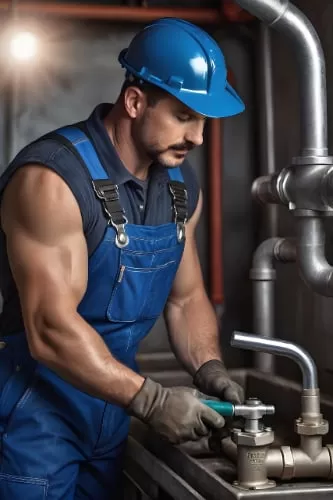Click to Get Big Benefits
-
Plumber Near Me Now

-
Phoenix Plumbing Services

-
Tankless Water Heater Repair

-
Commercial Plumbers Near Me

-
Nearest Plumber

-
24 Hour Plumber Near Me


The Hidden Dangers of Old Pipes
Most American homes built before 1980 still have original pipes made of materials like galvanized steel, polybutylene, or even lead. Over time, these materials corrode, crack, or leach harmful substances into your water supply. For example:
Lead pipes (common in pre-1970 homes) can cause developmental issues in children and kidney problems in adults.
Galvanized steel pipes rust internally, reducing water pressure and introducing metallic debris into your water.
Polybutylene pipes (popular in the 1980s–90s) become brittle and prone to bursting, often without warning.
A professional plumber can inspect your pipes to identify risks. “Many homeowners don't realize their 'minor leak' is a symptom of a larger issue,” says Mike Reynolds, a master plumber with 20 years of experience. “By the time you notice discolored water or low pressure, the damage might already be extensive.”
When to Call a Plumber: Warning Signs
How do you know if your pipes are nearing their expiration date? Watch for these red flags:
Discolored water (yellow, brown, or metallic tints).
Frequent clogs or slow drains, despite regular maintenance.
Unexplained spikes in water bills, indicating hidden leaks.
Rust stains on sinks, tubs, or appliances.
Reduced water pressure from mineral buildup in pipes.
“Ignoring these signs can lead to mold growth, structural damage, or even pipe bursts,” warns Reynolds. “A plumber can perform a camera inspection to assess pipe conditions without invasive digging.”
How Plumbers Protect Your Home
While DIY fixes might seem tempting, plumbing systems require expertise. Here's how a licensed plumber adds value:
Modern Pipe Replacement
Plumbers can replace outdated pipes with durable materials like copper or PEX (cross-linked polyethylene). These options resist corrosion, improve water flow, and last 50+ years. “We're seeing more homeowners upgrade to PEX because it's flexible and cost-effective,” says Reynolds.
Leak Detection and Repair
Even small leaks waste up to 10,000 gallons of water annually per household, according to the EPA. Plumbers use advanced tools like acoustic sensors and thermal imaging to locate leaks behind walls or underground—saving you money and preventing mold.
Water Quality Testing
If your water tastes metallic or smells odd, a plumber can test it for lead, bacteria, or chemical contaminants. They'll also recommend solutions like whole-house filtration systems or pipe replacements.
Emergency Preparedness
Aging pipes are more likely to fail during extreme weather. Plumbers can winterize your system, install pipe insulation, or replace vulnerable sections before disaster strikes.
Preventive Maintenance: A Plumber's Advice
To extend your plumbing's lifespan, Reynolds recommends these steps:
Schedule annual inspections: A plumber can catch issues early, from root intrusions to corrosion.
Avoid chemical drain cleaners: These accelerate pipe deterioration. Instead, ask your plumber about hydro-jetting for clogs.
Upgrade fixtures: Install water-efficient toilets and faucets to reduce strain on old pipes.
“Think of plumbing maintenance like a dental checkup,” he adds. “A little care now prevents painful—and expensive—problems later.”
Don't Wait Until It's Too Late
The average cost to repair burst pipes is $5,000, not counting water damage or health risks. In contrast, hiring a plumber for preventive upgrades or replacements typically costs $1,500–$4,000—a worthwhile investment for peace of mind.
If your home is over 30 years old, contact a licensed plumber to evaluate your pipes. Modern solutions like trenchless pipe lining (which avoids yard excavation) or smart leak detectors (that alert you via smartphone) make upgrades easier than ever.

All News
Others
- Terms of use
- Privacy Policy
